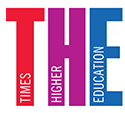Vote on whether to accept constitution that would overturn decades of private-led education said to be on a knife-edge
A vote on whether Chile will accept a radical new constitution that enshrines bold commitments to higher education reform is said to be on a knife-edge as the crucial poll approaches.
Public universities would be made free as part of the wide-ranging changes to the system, which currently boasts some of the highest tuition fees in South America.
A draft of the document was finalised by a constitutional assembly outside the formal political structures, but its success is seen as being inextricably linked to the fate of new president Gabriel Boric, one of the leaders of the 2011 student movement that called for the market-based education system installed by Augusto Pinochet’s dictatorship in the 1980s to be dismantled.
Critics said it was far from clear how the changes would work in practice, or how the cost of the commitments could be met, particularly as the government has also promised to cancel student debt and to increase funding for research from the current 0.4 per cent of gross domestic product to 1 per cent.
Andrés Bernasconi, professor of education at the Pontificia Universidad Católica de Chile, said even if the population backs the document in the 4 September plebiscite – something that was far from certain – its sections on higher education will probably remain “expressions of desire” for at least the next three to four years, before further legislation that enacts the promises can be passed.
The key clause that commits to free higher education in public universities regardless of a student’s household income is much vaguer about the future of the country’s large private university sector, whose funding and fee structures would be left to the law to define.
Under the gratuidad programme set up by Michelle Bachelet, Chile’s last left-wing leader, the poorest 60 per cent of society have their tuition fees paid by the government, whether they attend public or private institutions, and it is not clear which elements of this system will be retained.
Other proposed changes include a commitment to set up at least one public university in every region of the country and a new state funding system under which money would be distributed to institutions via block grants rather than based on the number of students enrolled.
Maria Veronica Santelices, associate professor of education at the Pontificia Universidad Católica de Chile, said that if passed, the constitution would enshrine the idea of education as a right and give public institutions a stronger role than they have enjoyed in the past 30 years, when the expansion of Chile’s higher education sector was left mostly to the private institutions.
But the standard of public universities ranged widely, from the highly prestigious and selective University of Chile and University of Santiago, Chile (USACH) to much lower-quality institutions that have suffered from many years of underfunding, according to Carolina Guzman Valenzuela, professor of higher education at the University of Tarapacá.
She said that faced with a choice, many prospective students who could not get into the best public institutions might decide it is better to attend a private university with a good reputation, even if they have to pay fees.
Professor Bernasconi said Mr Boric had spoken about boosting the public system – which currently accounts for only 16 per cent of the student intake – but cautioned that this would be hard politically in the long run “because demand from students and families in the private sector will be too strong to ignore”.
“In the short term, you would need students to choose public over private in sufficient numbers to change the proportion of students in either system so that it would make sense,” he added.
Professor Bernasconi said private universities – particularly the older institutions created before the Pinochet era – have objected to the proposals.
“They are saying we are basically public universities, regardless of our legal nature and the private nature of our charter; we have been operating as public institutions for many years. The constitutional convention is ignoring the contributions we have made for the public good,” he said.
Kenneth Roberts, professor of government and an expert in Latin American politics at Cornell University, said the constitutional changes will face significant opposition from the more conservative elements of Chilean society, but the polls are likely to narrow as the date of the vote approaches.
He said Chile – as the birthplace of neoliberalism and showcase for privatised education – is being seen as a key battleground as the region changes politically again following the elections of leftist leaders in Peru, Colombia and Mexico.

0 Comments